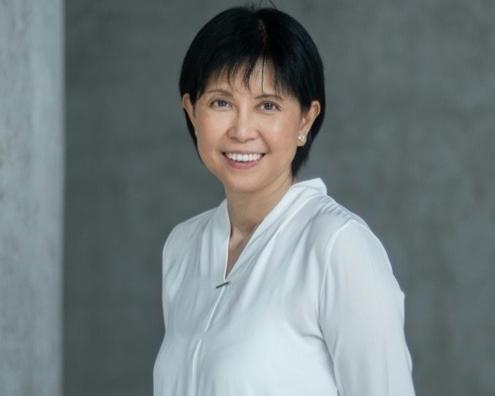Editor’s note: Hong Kong Chief Executive Carrie Lam Cheng Yuet-ngor delivered her fifth Policy Address on Wednesday. How did the people in Hong Kong respond to the new initiatives she outlined? Here are some answers China Daily has gathered.
 Ng Mee-kam, Professor, Department of Geography and Resource Management of the Chinese University of Hong Kong, and
associate director, Institute of Future Cities. (PHOTO PROVIDED TO CHINA DAILY)
Ng Mee-kam, Professor, Department of Geography and Resource Management of the Chinese University of Hong Kong, and
associate director, Institute of Future Cities. (PHOTO PROVIDED TO CHINA DAILY)
Ng Mee-kam
Professor, Department of Geography and Resource Management of the Chinese University of Hong Kong, and associate director of the Institute of Future Cities
1. Which policy unveiled in the new Policy Address is the most impressive one for you? Why?
Personally, I find the idea of the Northern Metropolis exciting. Though as a planner, I want to caution that the move has to be carefully curated because the New Territories is actually Hong Kong’s “cultural hearth”, a territory with thousands of years of history, culture and heritage, though it is also dotted with all sorts of land-use issues.
Why? The government has practiced “Hong Kong Island and Kowloon-centered planning” for the past decades (if not century) and has stubbornly relied on reclamation from the sea to expand the land supply rather than rationalizing the use of the land resources in the New Territories. I think the new plan is a great move if careful understanding and planning of the New Territories are undertaken.
I have advocated for a “Tomorrow New Territories Vision” rather than the Lantau Tomorrow Vision for a long time. This is why I am excited about the initiative. I think the move is good not just for coordinated development with the Chinese mainland but actually more for the benefits of Hong Kong. The New Territories makes up over 80 percent of the city’s land resources. If better planned and designed (meaning with good understanding of the existing situations, how people use the land and their aspirations, etc.), the plan can offer Hong Kong residents alternative lifestyles, opportunities to balance residence-jobs, human settlements that are enriched by physical and cultural heritage, farming opportunities and blue-green infrastructure, etc.
And I will see the integration with Shenzhen and the Chinese mainland as a bonus, and the benefits of which probably will take more years to materialize.
2. The Policy Address plans to restructure policy bureaus and establish the position of deputy secretary responsible for regional development. What outcome do you expect from the government restructuring? What difficulties do you think lie ahead? What is your overall take on the move?
From a long-term perspective, the integration of Hong Kong in the Guangdong-Hong Kong-Macao Greater Bay Area and beyond is inevitable and indeed desirable. No city can survive well without the support of a great hinterland. I think having a formal high-level position within the government to take care of regional development is a good thing. Hong Kong needs to learn how to be a special administrative region within the national system, and this should be a good starting point. The greatest hurdle would be the differences of institutional setup and development philosophies, as well as the roles played by the government, the market and the civil society in governing the territories on both sides of the boundary. Hopefully, the differences can be attenuated through mutual understanding, learning and respect.
3. Regarding the education sector, which measures proposed in the Policy Address do you find appealing? Which issues do you think remain neglected? And what are your suggestions?
I am glad to see the increase of resources for special education and non-Chinese-speaking students. I remember when I did my research in Singapore; they told me that at the turn of the millennium, they invited the world’s top educationists to their country and sought their advice on education in the then-new millennium. After that, Singapore transformed its old education model (based on rote learning) into one with an emphasis on learning by doing, exploration, experiments, etc. Somehow, I think we also need to reflect on the way we educate our students — how to inspire them to be creative and innovative, and have the capacity to embrace issues of the 21st century. There seems to be no such discussion in the Policy Address.



